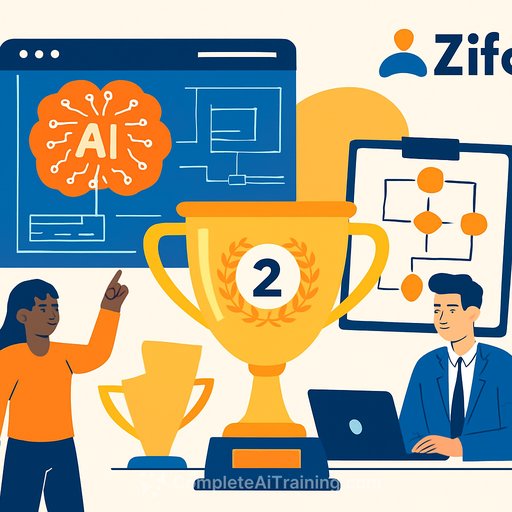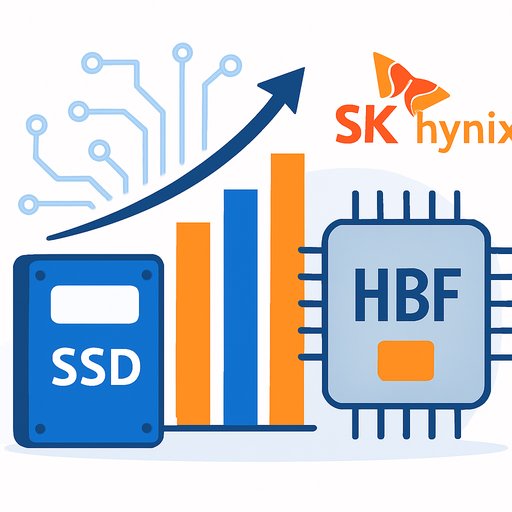CDISC 2025 AI Innovation Challenge: Zifo's AI Blueprints Earn Runner-Up
Zifo earned runner-up honors in the CDISC 2025 AI Innovation Challenge for two product-focused breakthroughs: a unified data model for study design and an end-to-end clinical data lineage system. For product leaders, this is a clear signal: standards-first design plus AI can compress cycle time, reduce rework, and increase trust in clinical outputs.
Why this matters for product leaders
The cost of poor structure is delay, rework, and audit risk. Zifo's approach shows how to turn standards into product leverage-treat protocols as data, enforce traceability, and make compliance a side effect of transparent systems.
- Adopt a model-first approach to study design using USDM and Biomedical Concepts.
- Make traceability a default feature, not a project-protocol to CRF to SDTM to ADaM to TLFs.
- Turn static documents into reusable, machine-readable assets.
- Use AI to extract metadata, but anchor everything to CDISC standards.
What Zifo built
Use Case 1 (USDM): A USDM-driven application that integrates CDISC standards and Biomedical Concepts. It features intuitive workflows, validation, and built-in traceability to drive consistent study design and reuse.
Use Case 3 (Semantic Traceability): An AI-powered lineage explorer that unifies protocols, CRFs, SDTM, ADaM, TLFs, Biomedical Concepts, and USDM into one interactive system. This creates direct links from analysis back to design, enabling faster reviews and cleaner regulatory submissions.
Deepak Ananthan, Head of Clinical Services and AI Scaling at Zifo, said the recognition reflects the team's scientific expertise and AI-driven solutions addressing real clinical research challenges.
Judges' take
For Use Case 1, judges highlighted the potential industry value of the USDM-led workflows, validation features, and traceability tools. The focus on standardization and controls resonated with reviewers looking for practical impact.
For Use Case 3, judges praised the scope and the innovative use of standards to deliver an interactive lineage experience. They called it a meaningful step for digital adoption in clinical research.
Where to see it next
Zifo will present its AI solutions at the CDISC U.S. Interchange in Nashville on Monday, October 13, 2025. For background on standards, visit CDISC and the CDISC Standards overview.
CDISC 2025 AI Innovation Challenge: Winners
- Protocol Library - Building USDM-centric repositories from existing protocols
Winner: Faro - AI-powered protocol digitization solution transforming static documents into reusable, structured data
Runner-up: Zifo - Converts protocols into machine-readable assets for study design standardization and reuse - BC Acceleration - Driving transformation through rapid development of Biomedical Concepts
Winner: Saama - AI-driven Smart BC Suite to extract, standardize, and link Biomedical Concepts
Runner-up: Lindus Health - BC Registry Framework leveraging registries and ontologies to automate matching - Automated Traceability - Establishing semantic traceability from analysis back to study design
Winner: Merck - Open-source traceability engine linking protocols, CRFs, SDTM, ADaM, and TLFs into one lineage graph
Runner-up: Zifo - End-to-end traceability across trial artifacts with AI-driven metadata extraction
What product teams can do now
- Define your canonical data model for study design (USDM + Biomedical Concepts). Treat it as a product, not a document set.
- Map full lineage from protocol to analysis outputs. Automate lineage capture at each handoff.
- Stand up a metadata store that tracks versions, approvals, and dependencies across protocol, CRFs, SDTM, ADaM, and TLFs.
- Bake validation into workflows. Fail fast on standard violations and surface fixes in the same UI.
- Prioritize an interactive lineage explorer for reviewers and QA to reduce review time and rework.
- Measure cycle time, change requests, and audit findings pre/post implementation to prove value.
Build skills across your product org
If you're scaling AI skills across product, data, and clinical ops roles, explore curated learning paths by job at Complete AI Training.
Your membership also unlocks:






